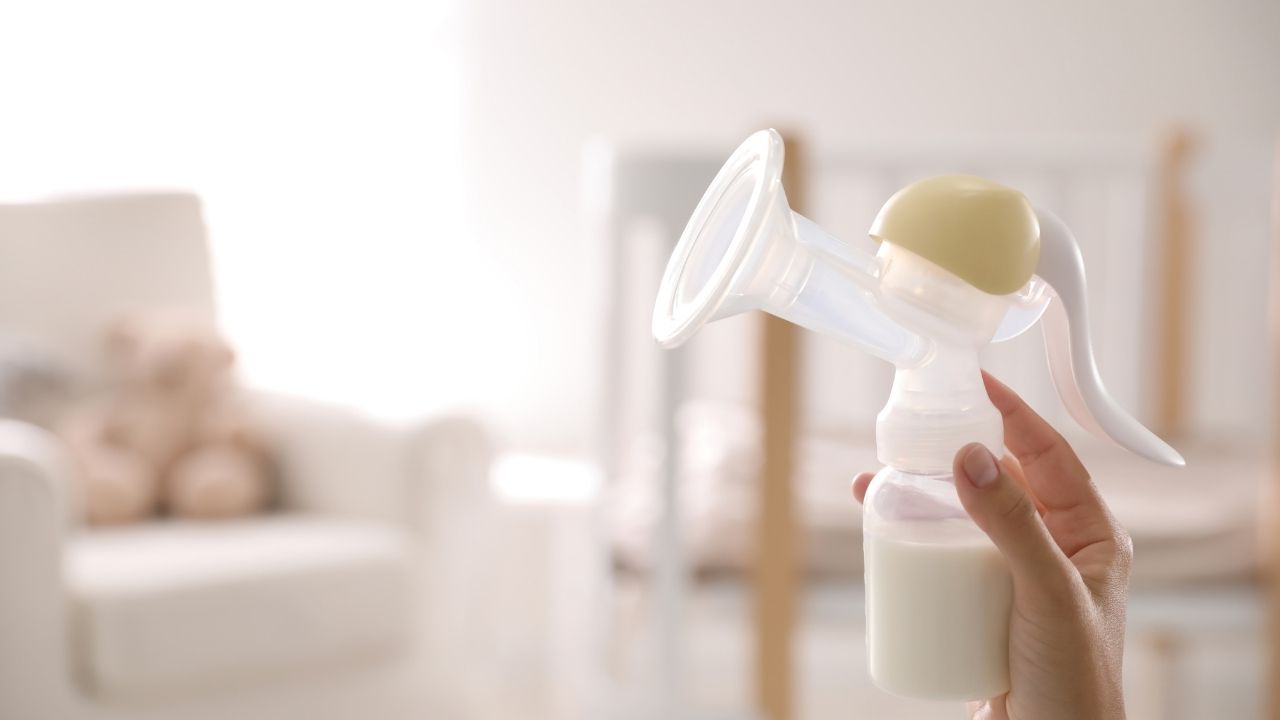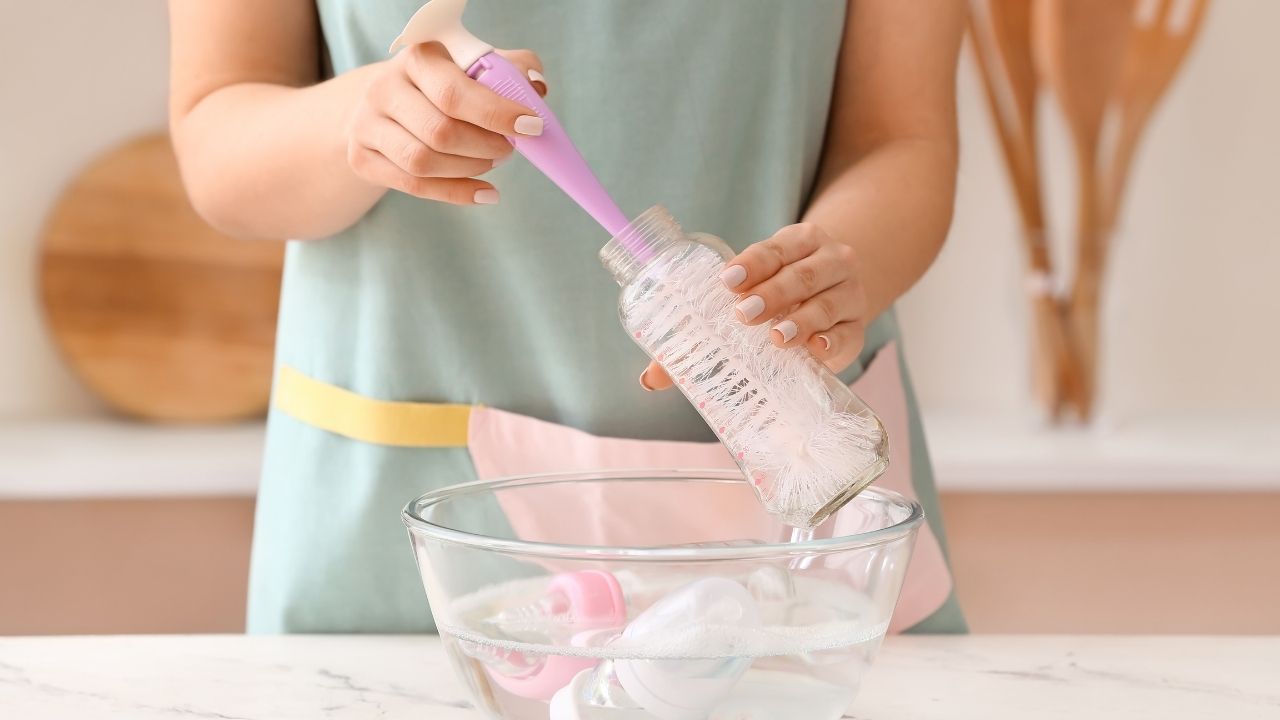Congratulations on becoming a new parent! As you embark on this exciting journey, one of the most important decisions you'll make is how to feed your baby. While breastfeeding is often touted as the golden standard, it's not always possible or preferred by all parents. Formula feeding is a safe and healthy alternative that can provide your baby with the nourishment they need to thrive.
But with so many types of formula available and conflicting advice from well-meaning friends and family members, it can be overwhelming to know where to start. That's why we've put together this comprehensive guide on the ABCs of formula feeding. From choosing the right type of formula to mastering feeding techniques and addressing common concerns, our expert advice will help you feel confident in your ability to provide your little one with optimal nutrition for their growth and development. Let's dive in!
Types of Infant Formula
If you're wondering which type of infant formula to choose, we've got you covered with all the information you need. There are several types of formulas available in the market, and each one has its own unique benefits. Organic formula is a popular choice among parents who want to ensure that their baby's food is free from pesticides and other harmful chemicals. Most organic formulas are made from milk obtained from cows that have not been treated with antibiotics or growth hormones.
On the other hand, if your baby has allergies or intolerance to certain ingredients in regular formula, hypoallergenic formula may be a better option for them. Hypoallergenic formulas are specially designed to be gentle on sensitive tummies and often contain hydrolyzed protein, which is easier for babies to digest. It's important to note that these specialized formulas tend to be more expensive than regular ones but can be worth the investment for your baby's health. Now that you know about the different types of infant formula available let's move on to how to prepare it correctly.

Preparing Formula
When preparing formula, it is important to adhere to safe preparation techniques. This includes washing your hands thoroughly before handling any equipment or ingredients, and using clean and sterilized bottles and nipples. To sterilize bottles and equipment, you can either boil them in water for at least 5 minutes or use a sterilizing machine specifically designed for baby items.
Safe preparation techniques
You gotta make sure you're doing things right when it comes to prepping your bub's bottle, or else they might end up with a tummy ache. Here are some safe preparation techniques that you should keep in mind:
- Storage Guidelines: It's important to follow the storage guidelines on the formula container and not use expired formula. Once prepared, any unused portion of the formula must be thrown away within an hour of feeding your baby. If your baby doesn't finish their bottle within an hour, discard it and prepare a new one for the next feeding.
- Avoiding Contamination: Always wash your hands before handling formula and sterilize all equipment before each use. Follow manufacturer instructions carefully to ensure proper cleaning and sterilization of bottles, nipples, rings, and caps. Be sure to avoid cross-contamination by keeping your work area clean, using clean utensils, and not letting anything touch unsterilized surfaces.
By following these safe preparation techniques for formula feeding, you can help prevent contamination and ensure that your baby receives a well-nourished meal every time! In the subsequent section about sterilizing bottles and equipment, we'll go over some tips on how to properly sterilize everything needed for your little one's feedings.
Sterilizing bottles and equipment
Sterilizing bottles and equipment is crucial for ensuring that your baby stays healthy and free from harmful bacteria. As a parent, it’s important to take the necessary steps to make sure that everything used during feeding time is properly cleaned and sanitized. There are a few different methods of sterilization that you can use depending on what works best for you.

One common way to sterilize bottles and nipples is by boiling them in water for at least five minutes. Make sure that all parts are fully submerged, and allow them to cool completely before removing them from the pot. Another method is to use a steam sterilizer, which uses hot steam to kill any bacteria or germs on the items being sterilized. You can also use chemical solutions or tablets designed specifically for cleaning baby bottles and equipment, but it’s important to rinse everything thoroughly after using these products. No matter which method you choose, be sure to follow the manufacturer's instructions closely to ensure safe usage.
Feeding Techniques
Make sure to burp your little one frequently during feedings to prevent discomfort and reduce gas buildup. This is especially important if you are formula feeding, as babies tend to swallow more air when drinking from a bottle. To burp your baby, hold them upright against your chest with one hand supporting their head and neck, and gently pat or rub their back with the other hand until they release any trapped air.
When it comes to choosing the right feeding method for your baby, there is no one-size-fits-all solution. Breastfeeding offers many benefits for both mother and baby, including a unique bond between the two and breast milk that contains all the necessary nutrients for optimal growth and development. However, formula feeding can be a great alternative if breastfeeding is not an option or if you choose not to breastfeed. Whatever method you choose, make sure to follow proper feeding techniques to ensure that your little one receives adequate nutrition in a comfortable manner.
Common Concerns
If you're a new parent, there are plenty of common concerns that may arise during the early weeks and months of your baby's life. One of the most important things to consider is your baby's feeding schedule. It's essential to establish a routine that works for both you and your little one. This means finding a balance between feeding on demand and sticking to a regular schedule. Remember, every baby is different, so it may take some trial and error before you find what works best for your family.

Another common concern when it comes to formula feeding is allergies and intolerances. Some babies may have trouble digesting certain types of formula or ingredients, leading to discomfort or other symptoms such as rashes or vomiting. If you suspect that your baby has an allergy or intolerance, talk to their pediatrician right away. They can help determine if a switch in formula is necessary or if there are other steps you can take to alleviate any issues. With proper attention and care, most babies can thrive on formula without any problems!
As you navigate the world of formula feeding with your little one, keep in mind these common concerns but don't let them overwhelm you! There are many resources available to help guide you through any challenges that may arise along the way. In the next section, we'll provide some tips for ensuring that your baby stays healthy and happy while being fed with formula.
Tips for a Healthy Baby
Maintaining a balanced diet is crucial for your baby's overall health and development. Be sure to choose a formula that meets their nutritional needs, and consider introducing solid foods around 6 months of age. Safe sleep practices are important to reduce the risk of Sudden Infant Death Syndrome (SIDS), such as placing your baby on their back to sleep and avoiding loose bedding or toys in the crib. Regular check-ups with a pediatrician can ensure that your baby is meeting developmental milestones and receiving necessary immunizations.
Maintaining a balanced diet
It's important to keep a good balance of nutrients for your little one's health. As your baby grows, their nutritional needs will change and it's essential that you introduce solids in a timely manner to ensure they get the right balance of vitamins and minerals. Solid foods should be introduced between four and six months, as this is when your baby will need more iron than what breast milk or formula can provide.

When introducing solids, remember to start with simple flavors such as sweet potato or avocado and avoid adding any sugar or salt. Also, be mindful of any allergies or intolerances that may run in the family and speak with your pediatrician about safe food choices. In addition to solid foods, dietary supplements may also be recommended by your doctor if necessary. A balanced diet is key for proper growth and development, so take the time to research different types of foods that are rich in vitamins and minerals that can support your baby's overall health.
Transition: Now that we've covered some tips on maintaining a balanced diet for your baby, let's move on to discussing safe sleep practices.
Safe sleep practices
Maintaining a balanced diet is crucial for your baby's growth and development, but it's not the only aspect to consider when it comes to their overall health. Safe sleep practices are just as important in ensuring your little one is well-nourished and thriving. From swaddling techniques to creating a sleep-friendly environment, there are several things you can do to promote healthy sleeping habits.
One of the most important aspects of safe sleep practices is making sure your baby sleeps on their back. This reduces the risk of Sudden Infant Death Syndrome (SIDS) and other sleep-related injuries. You should also avoid using soft bedding, such as pillows or blankets, in your baby's crib. Instead, opt for a firm mattress with fitted sheets that fit snugly around the edges. Swaddling can also help soothe your baby and make them feel more secure while they sleep, but be sure to follow proper techniques to prevent overheating or suffocation.

Regular check-ups with a pediatrician are essential in monitoring your baby's growth and development. During these visits, you can discuss any concerns you have about your baby's sleeping habits and receive expert advice on how to improve them if necessary. Your pediatrician may also recommend certain milestones or developmental goals for your little one based on their age and individual needs. By working closely with your child's doctor and following safe sleep practices at home, you can help ensure that your baby grows up healthy, happy, and well-nourished.
Regular check-ups with a pediatrician
Regular check-ups with a pediatrician are crucial for monitoring your little one's growth and development, ensuring they receive the necessary care and attention to thrive. Pediatrician appointments should begin within the first few days of your baby's life and continue regularly throughout their early years. During these visits, your doctor will weigh and measure your baby, track their growth, and provide guidance on any concerns or questions you may have.
In addition to tracking physical growth, pediatricians also assess developmental milestones like language skills, social interaction, and motor skills. Regular check-ups allow doctors to catch any potential issues early on and provide interventions if necessary. It's important to stay up-to-date with immunizations during these appointments as well to keep your child healthy and protected from preventable diseases. Remember that every child develops at their own pace; don't be afraid to ask questions or express concerns during these visits so that you can work together with your pediatrician for the best possible outcomes for your child.
- Your pediatrician may recommend certain tests or screenings based on family history or risk factors.
- Keep a record of any questions or concerns you have before each appointment so that you can discuss them with your doctor.
- Don't hesitate to seek a second opinion if needed - finding a doctor who aligns with your values and beliefs is important for creating a trusting relationship.
Moving forward into discussing formula feeding and parenting, it's important to remember that regular check-ups with a pediatrician will continue to play an essential role in keeping both you and your baby healthy throughout this journey.

Formula Feeding and Parenting
As a parent, you have many important decisions to make when it comes to raising your baby. One of the most crucial choices is whether to breastfeed or formula feed your little one. While breastfeeding has its benefits, formula feeding can also provide all the necessary nutrients for a well-nourished baby. However, formula feeding requires additional responsibility and attention from parents.
One key aspect of formula feeding is the importance of bonding techniques and emotional support. Just like with breastfeeding, bonding with your baby during feeding time is essential for their emotional development and overall well-being. You can use this time to cuddle, talk, sing or read to your little one, providing them with love and affection while nourishing their growing bodies. Additionally, as with any parenting decision, it's essential to have a support system in place that understands and respects your choice to formula feed. Whether it's family members or friends who've gone through similar experiences or seeking professional help from lactation consultants or pediatricians - having someone you trust by your side can make all the difference in navigating the ups and downs of parenting.
Frequently Asked Questions
Can I mix different types of infant formula together?
Imagine you are a busy parent trying to provide the best nutrition for your little one. You may be tempted to mix different types of infant formula together to get more benefits. However, there are some drawbacks to this approach. Mixing formula types can lead to inconsistencies in nutrient levels and may upset your baby's digestion. For example, adding a hypoallergenic formula with a regular formula may nullify the benefits of the hypoallergenic formula. It is best to stick with one type of formula recommended by your pediatrician and follow the instructions carefully for proper preparation and storage. This ensures that your baby gets all the necessary nutrients without any potential risks or complications from mixing formulas. Remember, when it comes to feeding your baby, safety should always come first!
How do I know if my baby is getting enough formula?
If you're formula feeding, it's important to ensure that your baby is getting adequate nutrition. Signs of underfeeding include fussiness, lack of weight gain, and decreased diaper output. You can monitor your baby's intake by counting the number of ounces they consume per feeding and tracking the number of feedings per day. It's also important to follow the instructions on the formula packaging and not dilute the mixture with extra water or add any other substances. If you have concerns about your baby's nutrition or feeding habits, don't hesitate to consult with your pediatrician for further guidance. Remember, ensuring your baby receives proper nourishment is a top priority in their early stages of development.

What should I do if my baby is allergic to a certain type of formula?
If your baby is allergic to a certain type of formula, it can be overwhelming and concerning. But don't worry, there are alternative formulas available for you to try. It's important to consult with your pediatrician before making any changes to ensure that your baby is getting the right nutrition they need. Your pediatrician may recommend a different type of formula or even suggest adding in probiotics to help alleviate any symptoms. Remember, every baby is unique and what works for one may not work for another, so trust in your medical professional's advice and keep trying until you find the right solution for your little one.
Is it safe to use expired infant formula?
Using expired infant formula can pose potential risks to your baby's health. The nutritional value of the formula may have decreased, and harmful bacteria could have grown in the product. It is essential to properly store infant formula by keeping it in a cool, dry place and not exposing it to excessive heat or humidity. Always check the expiration date before using any infant formula, and discard any that have passed their expiry date. Your baby's health is of utmost importance, so always prioritize safety over convenience when it comes to feeding them.
Can I switch between formula brands frequently?
Hey there, it's totally understandable to want to switch between formula brands frequently - after all, as busy parents, you're always looking for the most convenient and cost-effective options. However, it's important to remember that different brands may have slightly different ingredients or nutrient levels. So if your little one is thriving on one particular brand of formula, it might be best to stick with that rather than constantly switching things up. That being said, if you're considering a switch for other reasons (like trying an organic formula), make sure you do your research and choose a reputable brand with the necessary certifications and benefits of organic formula. Remember: happy baby, happy life!
Conclusion
In conclusion, formula feeding can be a great option for parents who are unable or choose not to breastfeed. With the right information and preparation, you can ensure that your baby is getting all the nutrients they need for healthy growth and development.

Did you know that according to a study by the Centers for Disease Control and Prevention, approximately 80% of infants in the United States receive some formula within the first year of life? This statistic highlights just how common formula feeding is among new parents. However, it's important to remember that every baby is different, and what works best for one may not work for another. Don't hesitate to reach out to your healthcare provider or a lactation consultant for personalized advice on feeding your little one.
.png)





